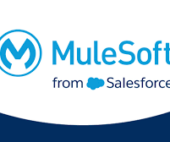The demand for reliable data has been a longstanding requirement. Driven by the continuous pursuit of real-time personalization and improved business efficiencies. The advent of Generative AI has further intensified these needs, prompting analytics and IT leaders to strengthen their data foundations. Data Strategies in AI
A significant 86% of analytics and IT leaders acknowledge that the effectiveness of AI’s outputs hinges on the quality of its data inputs. Encouragingly, technical leaders express confidence in their standing. Assessing factors such as data capabilities, processes, sponsorship, investment, and vision, more than a third of analytics and IT leaders categorize their data maturity as best-in-class.
Despite this optimism, only 6% of these leaders admit to having data maturity below industry standards or nonexistent. This statistic may reflect the challenges of benchmarking maturity against peers or, at worst, an overconfidence in data strategy and capabilities.
Data Strategies in AI
In today’s fast-paced work environment, characterized by a flood of data and constant communications, individuals are grappling to keep up. Simultaneously, business leaders face mounting pressure to enhance productivity amid unpredictable economic conditions. The list of challenges continues to expand:
- Abundance of data doesn’t always yield desired outcomes
- Workloads are on the rise, accompanied by more manual, time-consuming tasks
- Businesses navigate an uncertain environment, seeking a competitive edge
- Rapidly emerging innovations, like artificial intelligence (AI), pose challenges in finding the right fit
An AI Data assessment offers several benefits, empowering organizations to:
- Enhance staff skills and AI proficiency
- Identify and prototype practical enterprise-wide use cases
- Safeguard data and promote responsible AI deployment
- Gain insights into the AI tools leveraged by industry peers
- Evaluate suitable platforms for business needs, such as Open AI, Microsoft, Anthropic, Amazon, or Google
- Optimize existing software with AI co-pilots
- Learn effective ways to utilize AI for data analytics and predictive analytics
- Leverage AI applications within current software solutions
Four key strategies for AI impact are: vision, value-realization, risk, and adoption plans.













